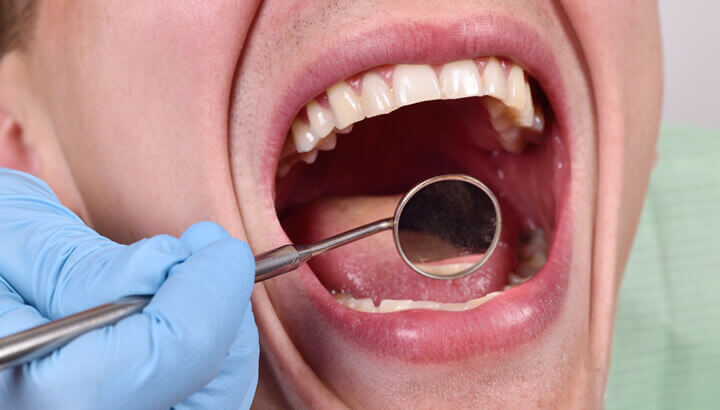
In recent years, apple cider vinegar has attained fame and glory amongst the alternative health community. It’s supporters claim that this product of fermented apples can provide a wide range of health benefits, from curing gut problems to lowering cholesterol.
These claims, while wide-ranging, are not as farfetched as they might seem. Apple cider vinegar (ACV) deserves much of the praise it receives. I make a point of having a dash of ACV in a glass of water at least once a day, as the research behind this intense beverage is just so overwhelmingly positive that it would seem a waste not to have it in my life. When I drink ACV, especially in the morning, I feel energized, my digestive system is more efficient at processing food and I feel good about the fact that I’m feeding my gut with beneficial bacteria.
As with many health foods, however, there is a limit to the benevolence of ACV. Knowing the recommended daily intake limits for ACBV is crucially important, as consuming too much of it can result in a range of adverse side effects, from loss of bone density to the erosion of tooth enamel to irritation of your digestive tract. Because I don’t want to scare you off, this article will explore some of the more notable benefits of bringing ACV into your life, but it will also discuss how much is too much, and what can happen when you go on an “ACV binge.”
The health benefits of apple cider vinegar
Unlike many emerging “health foods,” ACV has long been recognized as an important part of a healthy diet, so there is plenty of evidence to back up the lofty claims of its beneficence. For a lot of people, ACV can make a huge difference to their health, improving digestive capacity, rebuilding compromised gut microflora, restoring a balanced internal pH and discouraging the growth of formation of harmful pathogens. Let’s look into some of the more awesome benefits ACV can provide.
ACV lowers blood sugar
Possibly one of the most successful health applications of ACV is its ability to improve insulin sensitivity and lower blood sugar. Studies show that consuming ACV in conjunction with a high-carbohydrate meal can improve insulin sensitivity by as much as 34 percent, while other research indicates a blood sugar reduction of more than one-third when consuming ACV before, during or after eating white bread. For this reason, ACV makes an excellent natural way to fight type 2 diabetes, which can be highly problematic and often dangerous.
ACV promotes weight loss

While many people out there are searching for a miracle weight-loss supplement or diet, a simple, natural alternative is sitting right under their noses! Studies show that ACV can promote a feeling of satiety (fullness), meaning people who consume ACV find it easier to go without food or snacks between meals and feel more satisfied after each meal. This provides an excellent weight-loss tool, as consuming ACV results in a lower likelihood of overeating and an increased ability to give the cold shoulder to all those tantalizing sugary or salty snacks (every dieter’s worst enemy).
ACV is a probiotic
Modern society is doing a great job of ruining our digestive systems, specifically our gut microflora. Things like antibiotics, contraceptives, environmental toxins and chronic stress all contribute to the mass die-off of the good bacteria we need to digest our food, support immune function and balance our hormones.
This is what makes ACV so beneficial. Because raw ACV contains a high concentration of healthy bacteria (the same bacteria that convert simple apple juice into the acetic acid that is the source of many of ACV’s benefits), it is an excellent whole-food probiotic. This means that regularly consuming ACV can help to repopulate your gut microbiome, thereby reversing all the ravages that everyday life imposes on your digestive tract.
ACV kills bad bacteria

Not only can ACV increase your population of good bacteria, it can also help to control the number of bad bacteria living in your body. It is thought that the main agent by which ACV achieves this is via its acetic acid content, which somehow selectively wipes out harmful pathogens while leaving beneficial bacteria unscathed. Studies have also shown how ACV can inhibit the growth of bacterial strains like E. coli and salmonella, a handy thing to have if you’re traveling through developing countries or aren’t quite sure about the state of that chicken you just cooked!
How much ACV is too much?
Most health experts agree that consuming between one and two tablespoons of apple cider vinegar daily is good for you, but anything beyond this amount can lead to a range of adverse side effects. These can include the following:
ACV can make you nauseous

While consuming ACV around meals can help to improve satiety, it has also been shown that over-indulging in this potent liquid can push your stomach over the edge and promote feelings of nausea. While this isn’t necessarily something to be too alarmed about, feeling sick every time you sit down to eat a meal can rapidly detract from your quality of life. Take it easy on the vinegar and enjoy your meals!
ACV increases digestion time
Apple cider vinegar works to prevent blood sugar spikes and slow down the rate at which food leaves the stomach. This means slower absorption of the nutrients from these foods into the bloodstream — not necessarily a bad thing, unless you suffer from a condition called gastroparesis, a condition linked to type 1 diabetes. Gastroparesis affects the nerves of your stomach, meaning food hangs around in your stomach for too long and results in a range of unpleasant side effects like heartburn and bloating. Going heavy on the ACV can worsen this situation, meaning digestive issues for these people are amplified and eating is an even more harrowing process.
ACV erodes teeth

Because of its high acetic acid concentration, ACV significantly lowers the pH in your mouth. Therefore, consuming more than two tablespoons of ACV a day, especially if it isn’t sufficiently watered down or diluted, can damage your tooth enamel. One way to combat this effect is to dilute a tablespoon of ACV in a large glass of water and brush your teeth immediately after drinking it.
ACV can irritate your throat
Similar to your teeth, the acetic acid in apple cider vinegar can irritate your throat and create a burning sensation if it isn’t sufficiently diluted. You’ll find this out soon enough if you try chugging back some ACV on its own without some water to dull its acidic effects.
Be careful when drinking and using ACV. We recommend you read these 81 Ways to use it every day.
— Liivi Hess

